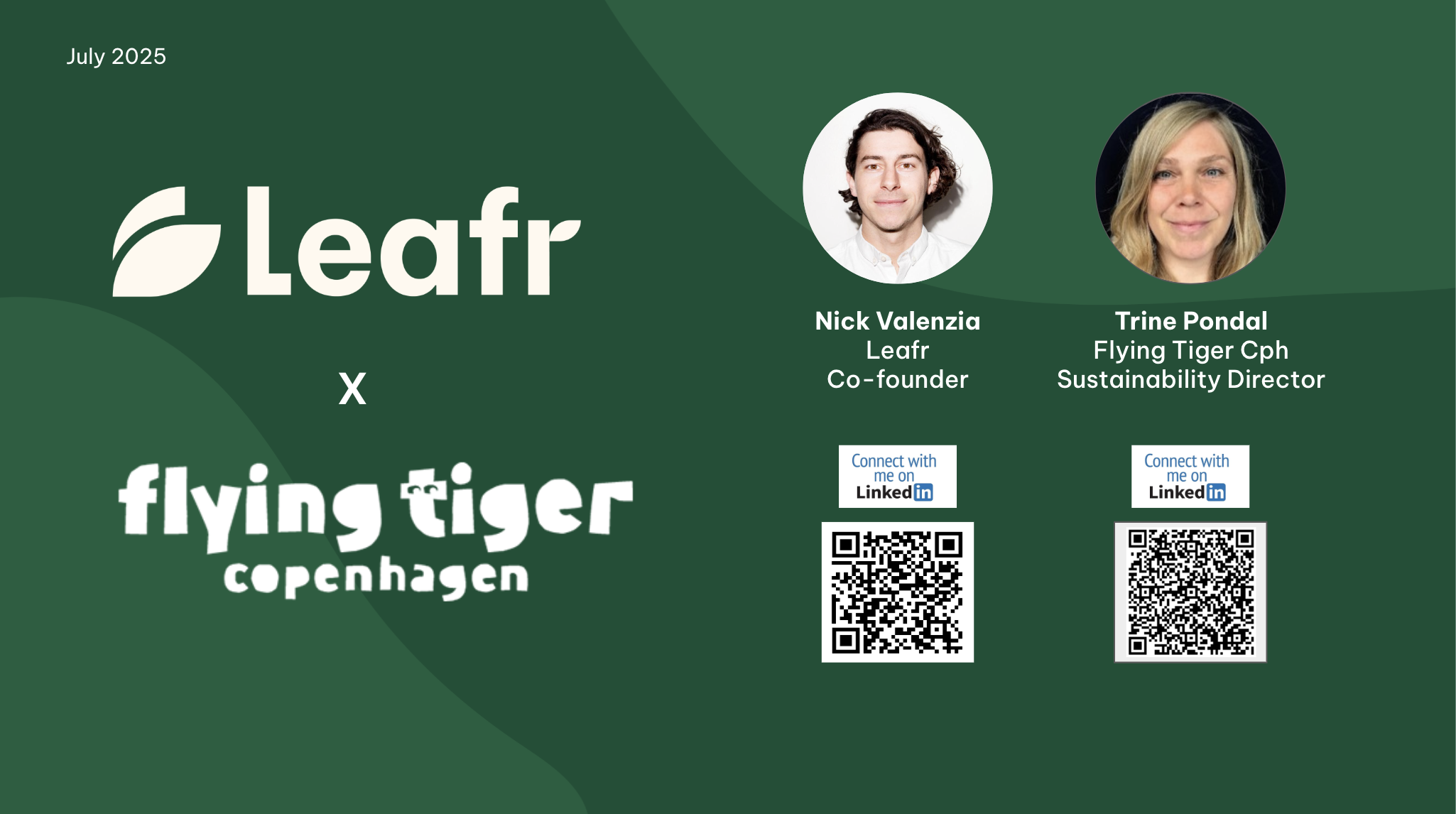The Age of the sustainability consultant is over
“Sustainability consultant” used to mean something. Now it covers everything from carbon modelling to ESG reporting to packaging redesign and tells you nothing about expertise. Businesses don’t need vague titles. They need sharp-fit specialists who can deliver fast. It’s time we retired the catch-all label and got specific.


“Sustainability Consultant” Has Lost Its Meaning
We run a marketplace of sustainability consultants. And we’ll be the first to say it: the term has lost its edge.
It no longer signals anything useful. Saying someone’s a “sustainability consultant” is like saying they work in marketing. Fine as a quick introduction, but meaningless when you’re trying to understand what they actually do.
There’s no overlap between someone who builds ESG reports and someone who leads carbon accounting. A climate risk analyst doesn’t do the same job as a packaging expert focused on circularity. Yet they all get grouped under the same label. It’s no wonder companies struggle to find the right support.
Sustainability Cuts Across the Business
Most teams sit in neat silos. Finance handles the numbers. HR manages people. Sales owns revenue. Everyone knows where they fit.
Sustainability doesn't work like that. It stretches across every function — product, operations, legal, governance, supply chain, communications. As a result, the skills needed vary widely.
Some roles require deep technical experience. Others lean into strategy or regulatory fluency. Some are about systems thinking; others demand specialist tools. Grouping them all under one title flattens the detail and hides the expertise.
Businesses Need Precision, Not Guesswork
When a company says it needs a sustainability consultant, what it often means is something much more specific:
- A scope 3 modeller to unpack value chain emissions
- A disclosure expert who can navigate CSRD or TCFD
- A circularity strategist to redesign product systems
- A decarbonisation lead with logistics and fleet experience
- An LCA modeller to validate environmental claims
- A climate risk analyst who understands physical and transition exposure
These are fundamentally different roles. Each comes with its own tools, frameworks, and methods. Hiring based on a vague job title leads to delays, misbriefs, and wasted budget.
Generalists Won’t Solve What Comes Next
Sustainability used to live on a slide in the investor deck. Now it shapes business models, exposes operational risks, and determines access to capital.
The stakes are higher. The timelines are shorter. Companies can’t afford half-measures or learning curves. They need people who already know what good looks like in their domain, who’ve done it before, and who can deliver fast.
That calls for specialists. Not generalists. Not advisors who do “a bit of everything.” Experts with focus, experience, and a point of view.
Leafr Brings Clarity to a Noisy Market
Leafr is a platform for sustainability consultants. But what we’re really building is a marketplace of specialisms.
We help businesses solve sustainability challenges by connecting them with the right expert — not just someone who sounds close enough. That starts with sharper questions:
- What kind of sustainability challenge are you facing?
- Which part of the business does it touch?
- What outcomes are you aiming for?
- What specific knowledge, tools, or experience are essential?
We’re moving away from broad titles and towards targeted expertise. That might mean helping a packaging business find a materials LCA expert. Or supporting a food brand with an expert in scope 3 for agriculture. No guesswork. No generic fits. Just sharp, tailored matches.
The Label Still Matters. But It Needs an Upgrade.
Here’s the paradox. We’re a marketplace of sustainability consultants and we know the label creates confusion.
We see the disconnect every day. The business trying to define what it needs. The expert who has ten years of experience in a niche most people don’t even know exists.
We bridge that gap. And we believe the role of the “sustainability consultant” isn’t going anywhere. But it does need better definition, clearer signals, and sharper focus.
We’re building that.
Need an Expert, Not a Guess?
If you’re tackling a sustainability challenge and can’t afford a to make the wrong hire, we’ll help you get it right the first time.
Get matched with a specialist today
No fluff. No generic consultants. Just sharp-fit expertise, ready to work on your project.




















